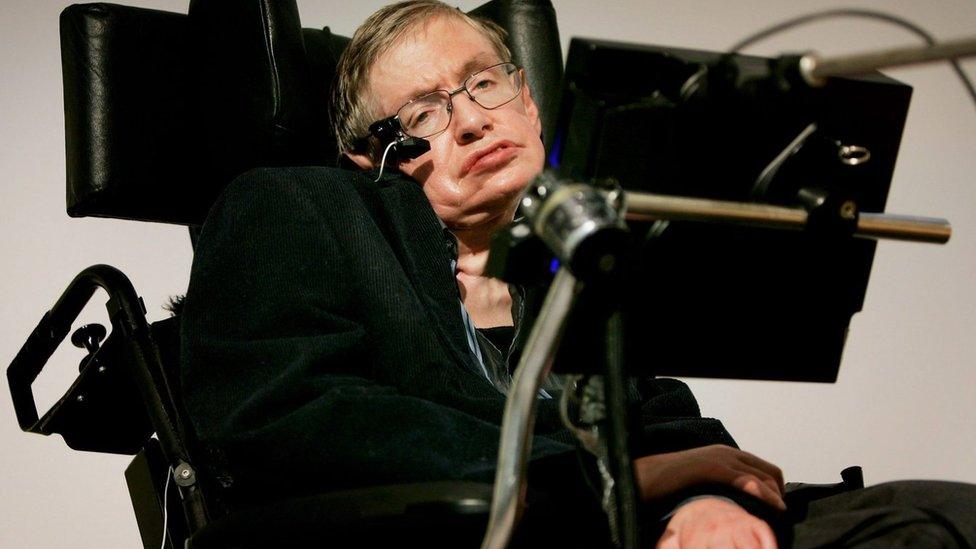Stephen Hawking's political views
- Published
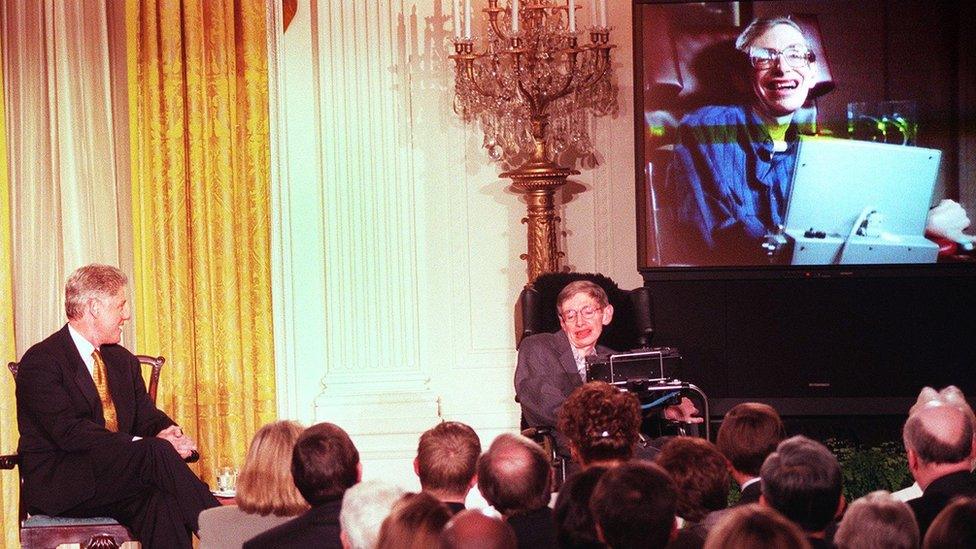
Stephen Hawking visits the White House in 1998
World-renowned for his scientific work, Prof Stephen Hawking was also a keen student of politics, with sometimes controversial views.

Brexit
Prof Hawking campaigned for the UK to remain in the EU, warning Brexit would be a "disaster" for science funding.
After the referendum, he said he was "sad about the result", in an article for the Guardian, external, warning against the "envy and isolationism" he said had driven it and arguing for a fairer sharing of wealth "both within nations and across national borders".
He was able to joke about it a few months later, at the Pride of Britain awards, when Theresa May presented him with a lifetime achievement award, describing him as "a man who has quite simply changed the way we look at the world".
"Thank you prime minister for those very kind words," he said, through his voice synthesiser.
"I deal with tough mathematical questions every day, but please don't ask me to help with Brexit." It brought the house down.
The NHS
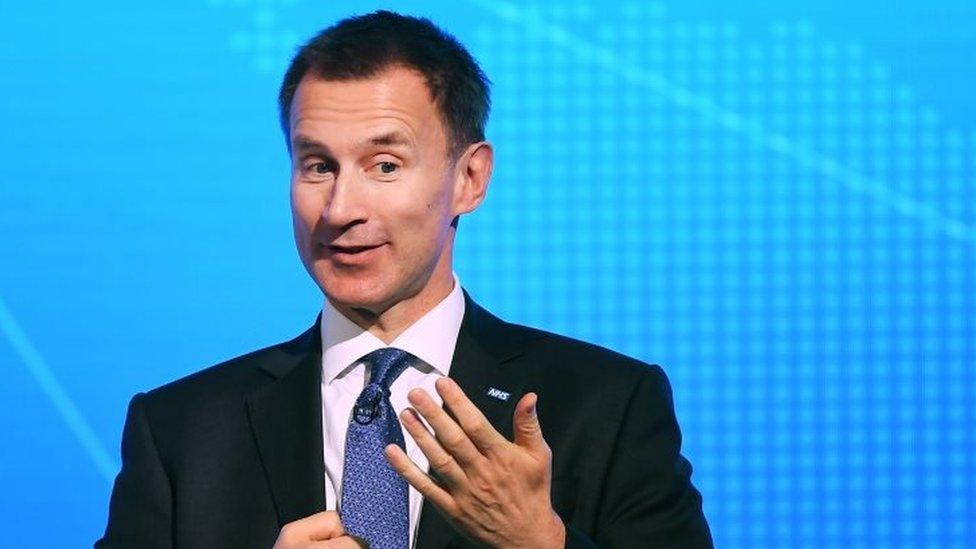
The great astrophysicist got into an epic feud with Jeremy Hunt last year, after the health secretary accused him of spreading "pernicious falsehoods" about the NHS, external in a speech the scientist gave to the Royal Society of Medicine.
In an article for the Guardian, external, Prof Hawking argued that the NHS, which had saved his life, was being destroyed by "underfunding and cuts, privatising services, the public sector pay cap, the new contract imposed on junior doctors, and removal of the student nurses' bursary".

The Labour Party
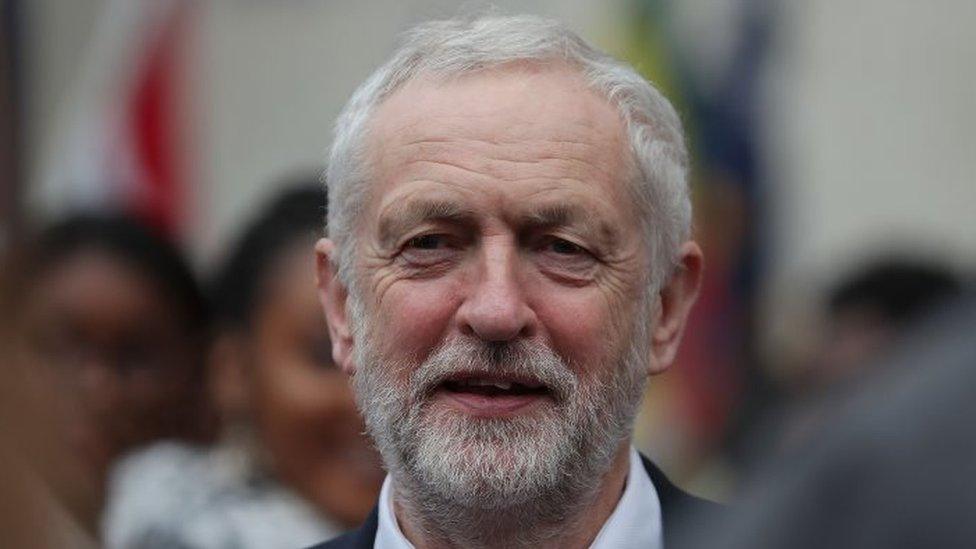
Prof Hawking was a long-time supporter of the Labour Party, although he was not, it seems, a fan of Jeremy Corbyn.
"I regard Corbyn as a disaster," he said last year. "His heart is in the right place and many of his policies are sound, but he has allowed himself to be portrayed as a left-wing extremist."
He was, nevertheless, persuaded to endorse Labour's candidate in Cambridge, Daniel Zeichner, at last June's general election.

Donald Trump
Asked on ITV's Good Morning Britain programme in May 2016 to account for the rise of US President Donald Trump, he said: "I can't. He is a demagogue, who seems to appeal to the lowest common denominator."

Science
With his gift for explaining the mysteries of the universe in an entertaining and accessible way, Prof Hawking was much in demand as a public speaker.
In 1998, he was invited to the White House to address then President Bill Clinton, First Lady Hillary Clinton and an audience including several notable American physicists.
"I don't believe science-fiction like Star Trek, where people are essentially the same 400 years in the future," he told them.
"I think the human race and its DNA will increase in complexity quite rapidly."
The event was "transmitted over the World Wide Web", as the fledgling BBC News website put it at the time., external

Assisted dying
Professor Stephen Hawking:"I think everyone should have the right to choose to end their life"
In 2014, Prof Hawking lent his support to a bill by Labour peer Lord Falconer that, if successful, would have allowed doctors to prescribe a lethal dose to terminally ill patients judged to have less than six months to live.
He said it would be "wrong to despair and commit suicide, unless one is in great pain, but that is a matter of choice".
"We should not take away the freedom of the individual to choose to die."
But he admitted that he had once briefly tried to end his life when he had had a tracheostomy - an operation to fit a breathing tube.
"I briefly tried to commit suicide by not breathing. However, the reflex to breathe was too strong."

The Iraq War
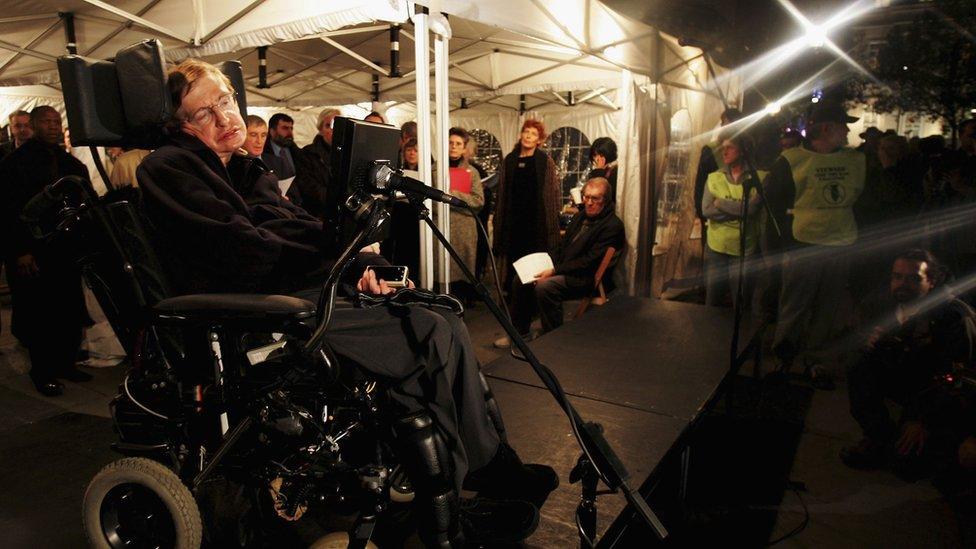
In 2004, Prof Hawking read out the names of people killed in the Iraq War, at a anti-war vigil in Trafalgar Square.
"The war was based on two lies," he told the crowd.
"It has been a tragedy for all the families. If that is not a war crime, what is?"
He added: "I apologise for my pronunciation. My speech synthesiser was not designed for Iraqi names."

Nuclear weapons
In 2007, Prof Hawking fronted a campaign by scientists, Church leaders, actors and writers to urge then Prime Minister, Tony Blair, to cancel Trident.
"Nuclear war remains the greatest danger to the survival of the human race," he said.
"To replace Trident would make it more difficult to get arms reduction, and increase the risk.
"It would also be a complete waste of money because there are no circumstances in which we would use it independently."

Animal testing
In 1998, Prof Hawking sparked controversy by defending the use of animals in medical research.
"The fuss over the use of animals in medical research is ridiculous," he said.
"Why is it worse to use animal experiments to save lives than to eat them, which the majority of the population are happy to do?
"I suspect that extremists turn to animal rights from a lack of the more worthwhile causes of the past, like nuclear disarmament."

- Published14 March 2018
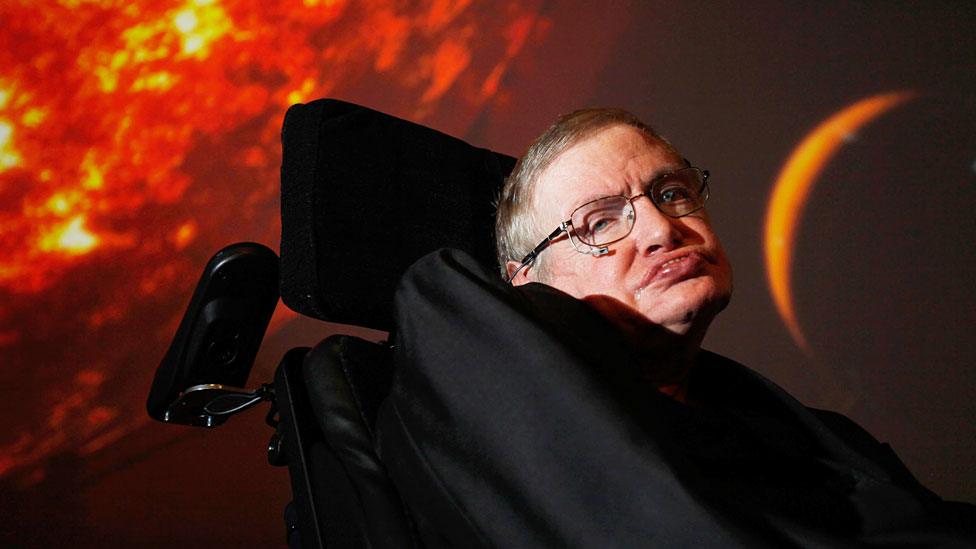
- Published14 March 2018
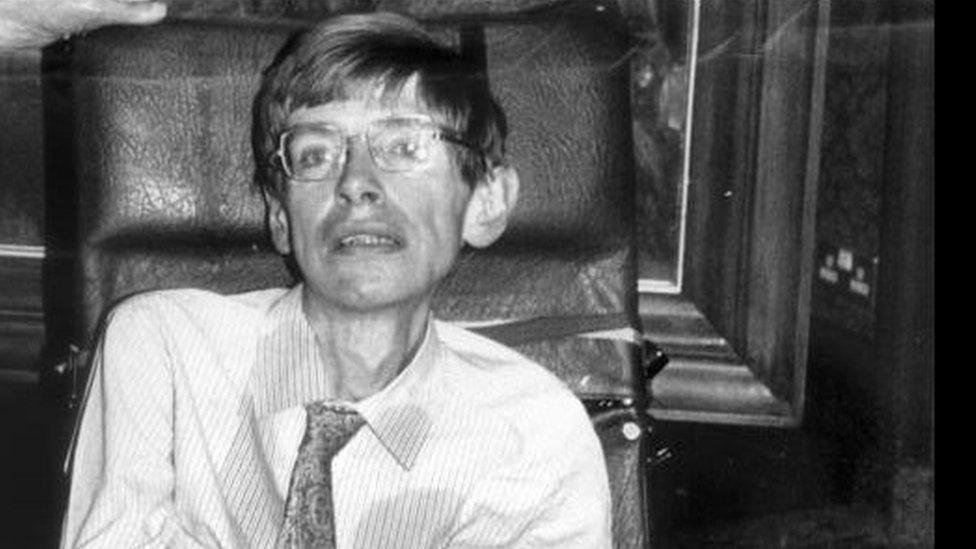
- Published14 March 2018
- Published14 March 2018
